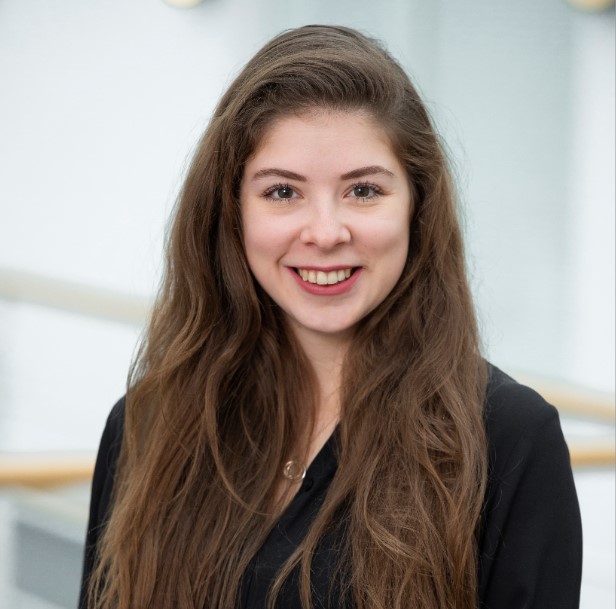
Can you briefly summarise how you have been collaborating with other researchers at Surrey, or supporting other researchers at Surrey?
My proudest achievement in working with other researchers in Surrey was organising the DC conference (DCC) last year. It was an amazing team with researchers from different departments and faculties, and a great lesson in teamwork. After that, I was also part of the organising committee for the research culture week (REACH) last November, another event that needed a lot of teamwork and good communication. For the last six months, I’ve been mentoring a first-year PGR in a different department in the Transitions Mentoring scheme. Within my research group, we have a very supportive spirit. We meet several times a week to discuss science and other things.
What have you achieved or gained so far by working with other researchers, that you might not have achieved on your own?
It would be impossible to organise events such as the DCC and the REACH week alone. It takes an incredible team effort, and the outcome is extremely rewarding. You learn a lot about yourself as well working in these teams, and many skills which you can apply to your PhD, such as time and project management.
Why do you think it is valuable to be collegial with other researchers?
I believe that life is easier, more enjoyable, and more successful if we support each other. It is extremely valuable to be collegial with other researchers, from positive effects for your own mental health to improving your own and your peer’s research to finding job opportunities for each other. Talking to other PGRs will often make you realise you are not alone with your struggles. For me, the other PGRs in my department are also a source of knowledge and experience. Whenever I struggle with a coding problem, am stuck on an idea, or have some admin question, there is always someone happy to help. With this support network, we enable each other to spend less time on annoying problems but rather get on with our research.
Connecting with other researchers is super important to me. I would not be here in Surrey if I did not meet someone from the department at a conference and they told me about the project (that I am now working on). At another conference (when I was a master student), I talked to many other students but also more advanced researchers. When an ECR, who just got a big grant, asked me whether I knew a prospective PhD student who could work with her, I could connect these two people who I just met during that week. I also love the DC conferences. It is amazing to see and learn about all the research carried out here and leaves you definitely more inspired.
How do you deal with competitiveness and imposter syndrome when working with other researchers? Is this an issue for you at all?
I compare myself a lot to others and almost always get imposter syndrome. Everyone who I work with seems to have achieved so much and does amazing work. I admire the way they carry out research, give presentations, and write papers, and think to myself: will I ever be good enough compared to them? But then I try to put myself in their shoes. They probably have imposter syndrome as well when they compare themselves to others. We mostly see the successes from other researchers but barely any of the rejections and defeats they had to deal with. Even Neil Armstrong, after being the first human on the moon, had imposter syndrome. So now I try to understand why I admire my colleagues so much and try to learn from that. Someone gives great presentations, what can I take from that and improve my presentations? This still does not make the imposter syndrome go away but I use it to work on myself and become a better researcher, and person.
Does collaborating with other researchers in your community distract you from progressing with your own research?
Being on the DCC committee was very time-intensive. My PhD project was almost paused for several weeks while the organising for the conference took over. However, in the long term, I learned so much from this. I have a more organised and less procrastinating approach to my research now which made my work more efficient.
My main PhD project is carried out within a small and a big collaboration. When I was working on my own in former projects, I had weeks of being in a ‘spiral of unproductivity’. Having regular meetings with my collaborators now makes me more productive, as I want to present new results regularly. Whenever I run into problems, they help and support me.
With the help of my supervisor, current collaborators, future collaborators, and mental support from the PGRs in my group, I recently achieved my biggest success so far (which is not official yet).
